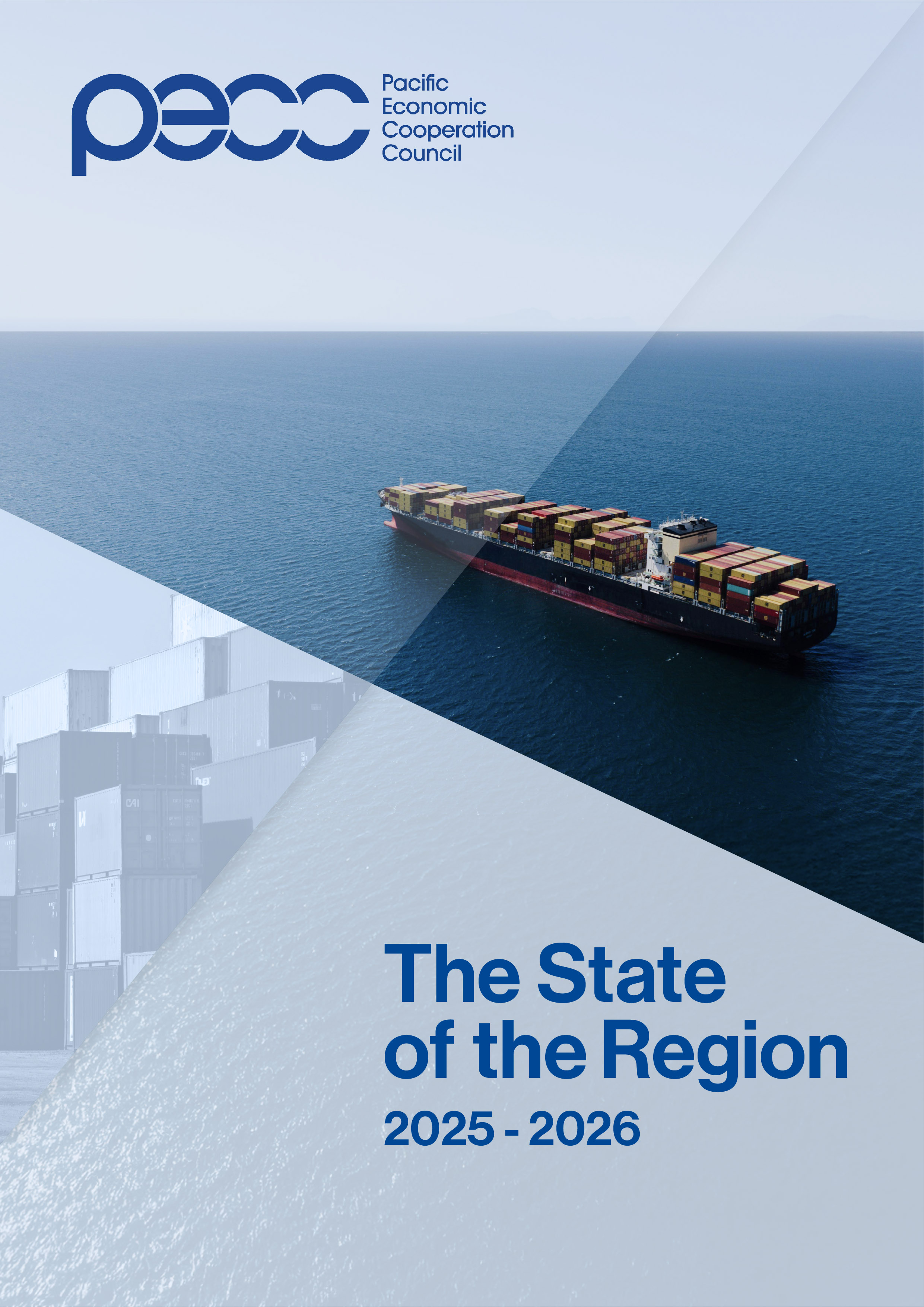 EXECUTIVE SUMMARY
EXECUTIVE SUMMARY
From June to August 2025, the Pacific Economic Cooperation Council (PECC) conducted its annual expert opinion survey, gathering responses from over 500 leaders from government, business, academia, civil society, and media across 24 economies. The results outline their views on different topics ranging from the future economic outlooks, top risks to growth, and top priorities that APEC leaders must urgently address.
Chapter 1 reveals that in the next few years, more than half of respondents expect subdued growth for the global economy. Despite uncertainty in the international trading environment, respondents hold a balanced outlook for growth for their economies and the Asia-Pacific region. “Increased protectionism and trade wars” emerges as the No. 1 risk to growth overall and as the most serious threat. Global economic slowdown, supply chain disruptions, inflationary pressures, and climate change are also identified among top 5 risks, with differing degrees of concern across subregions. Longitudinal comparisons show the higher share of survey subjects view increased protectionism and trade wars, inflation, and climate change as compared to previous years, indicating heightened concerns over these issues.
Governments’ responses to protectionism are expected to vary but reflect the importance of strengthening regional trade and economic cooperation as a key strategy for lessening the adverse effects of tariffs. About 85% of survey participants believe their governments will enhance Asia-Pacific economic cooperation and integration. The collaboration platforms that survey respondents deem useful include bilateral trade and investment agreements, the Asia-Pacific Economic Cooperation (APEC), the Comprehensive and Progressive Agreement for Trans-Pacific Partnership (CPTPP), the Association of Southeast Asian Nations (ASEAN) and ASEAN-Plus frameworks, the Regional Comprehensive Economic Partnership (RCEP), and the World Trade Organization (WTO).
As APEC Leaders prepare to gather in Korea for their annual meeting, respondents identify these top 5 priorities for their deliberations:
- Ameliorating risks posed by increased protectionism and trade wars
- Lowering geopolitical tensions to foster a stable economic environment
- Enhancing supply chain resilience and efficiency to mitigate disruptions
- Facilitating adoption and risk management of emerging technologies, including artificial intelligence
- Supporting and strengthening the multilateral trading system, especially the WTO
Chapter 2 further explores how global trade is entering a phase of profound and ongoing disruption shaped by structural and political shifts rather than temporary fluctuations. Recent protectionist trends reflect issues such as the uneven distribution of trade benefits and increased securitization of economic policy. Additionally, challenges such as digital fragmentation, supply chain resilience efforts, and new industrial policies are reshaping the trade landscape in ways that can test existing rules. From the analysis, three policy
imperatives emerge: preserving and reforming the multilateral system, ensuring regional and plurilateral agreements reinforce rather than fragment global rules, and harnessing the green transition as a unifying focus for cooperation.
Both chapters highlight the critical importance of APEC and its principles of open regionalism and consensus-building in helping regional economies navigate the era of mounting
uncertainty. Through voluntary, non-binding initiatives and multi-stakeholder dialogue, APEC continues to serve as an incubator of ideas and practical solutions that support and advance broader global trade goals. By playing this unique role, APEC and its members can make meaningful contributions in fostering an integrated, inclusive, and sustainable economic future for the Asia-Pacific.
(Click here for the full report)
(Click here for the Press Statement)

 EXECUTIVE SUMMARY
EXECUTIVE SUMMARY